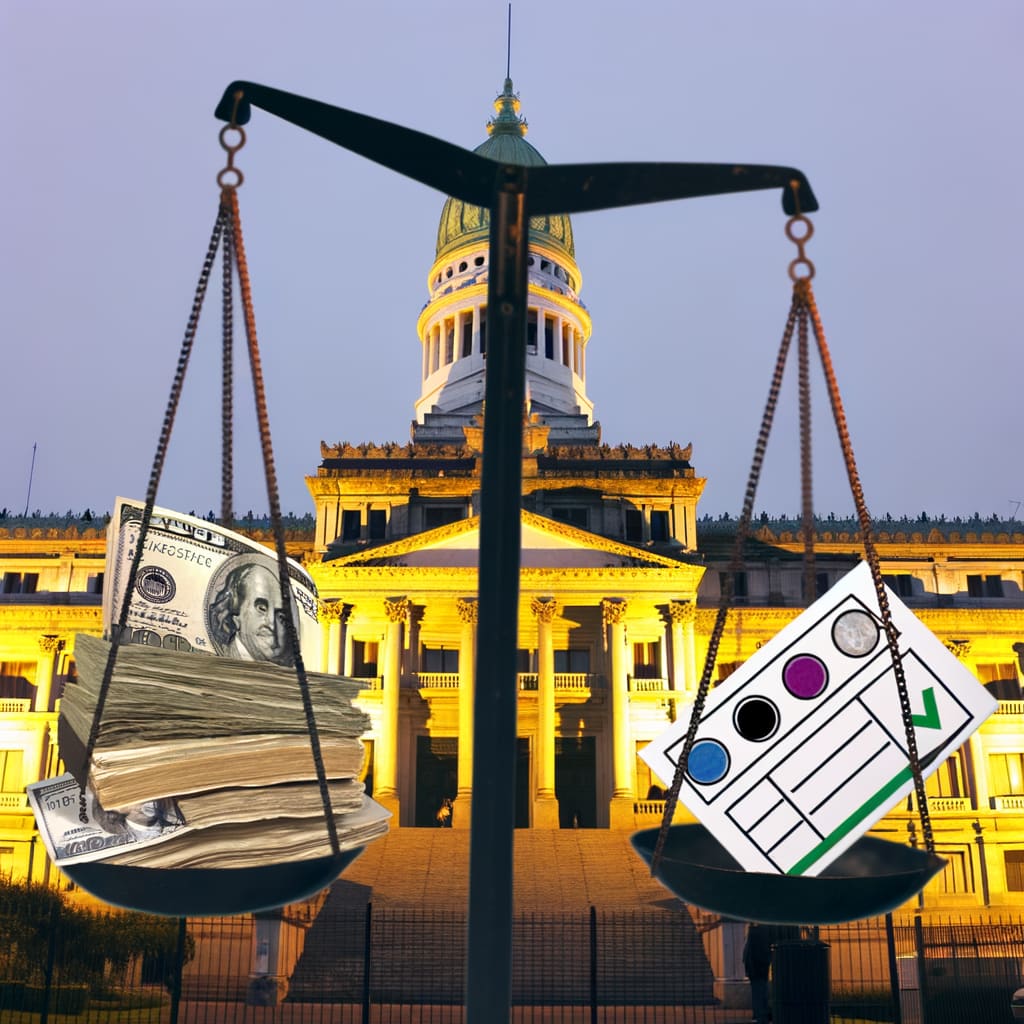Trump Meets Argentina's Milei Amid Controversy Over $20 Billion Bailout
President Donald Trump recently met with Argentina's President Javier Milei at the White House, following the Trump administration's agreement to provide a $20 billion bailout to the struggling South American nation. The move has sparked controversy both domestically and internationally, with critics arguing that the financial aid is conditional on the outcome of Argentina's upcoming elections.
A Controversial Alliance
The meeting between Trump and Milei has been met with protests and anger in Argentina, as the latter's 'Thatcherite' economic policies have divided the nation. Despite this, Milei has managed to win over Trump, leading to the U.S.'s significant financial support. However, this support has come with strings attached. Trump has made it clear that the aid would be halted if Argentina takes a political turn towards the left, a statement that has forced the Argentine government to issue numerous clarifications.
A Conditional Bailout
Trump's conditional support for Milei has been criticized by both the Argentine opposition and international observers. The U.S. president's stance has been perceived as an attempt to influence the outcome of Argentina's 2027 presidential elections. Elisa Carrió, the leader of the Argentine Civic Coalition, has labeled the agreement as a 'geo-strategic intervention' by the United States in South America, and has described Milei as 'a passing experience' and a 'cruel and perverse' leader.
Financial Implications and Responses
The American aid package primarily takes the form of a $20 billion currency swap, aimed at rescuing Argentina from its current financial crisis. In response to this bailout, bondholders have proposed a 'pause' in debt repayment for emerging countries, a move that could provide some relief for Argentina's economy. The proposal would suspend interest payments for up to a year in case of natural disasters, armed conflicts, or economic shocks.
However, the financial markets remain skeptical about the effectiveness of the U.S.'s monetary aid. Despite Trump's warning to Argentine voters, his pledge of financial support has failed to convince investors.
Milei Defends the Alliance
Following his meeting with Trump, Milei defended the alliance, stating that 'the United States is willing to support Argentina as long as we continue to advance in the ideas of freedom.' He also mentioned potential commercial advantages for Argentina in exchange for being an 'unconditional' ally of the United States, including tariff benefits and the possibility of a commercial agreement to reduce reciprocal tariffs.
Looking Forward
As Argentina grapples with its financial crisis, the controversial alliance between Trump and Milei continues to divide opinions. While some celebrate the potential economic relief, others express concern over the political implications of the deal. Amid these contrasting narratives, the world watches as Argentina navigates its complex political and economic landscape.

